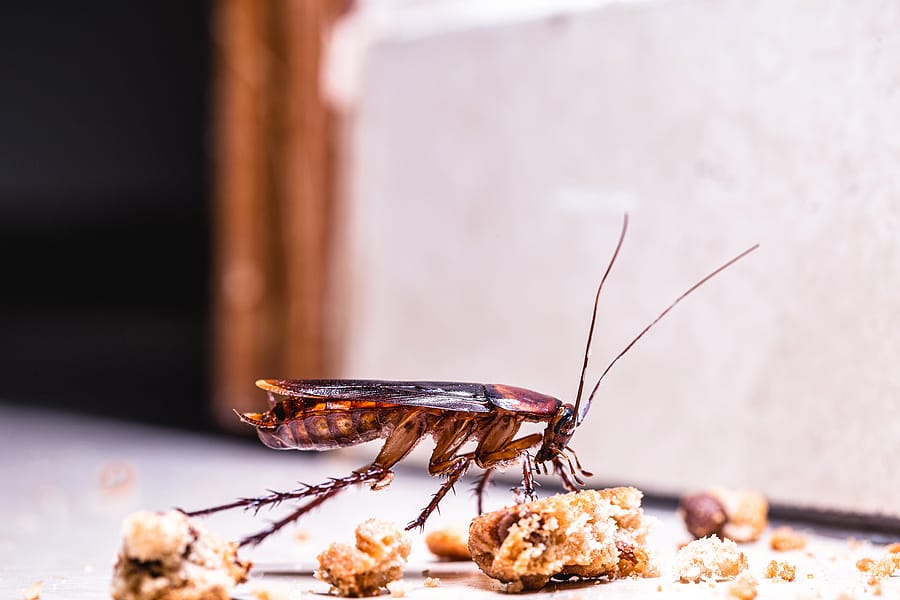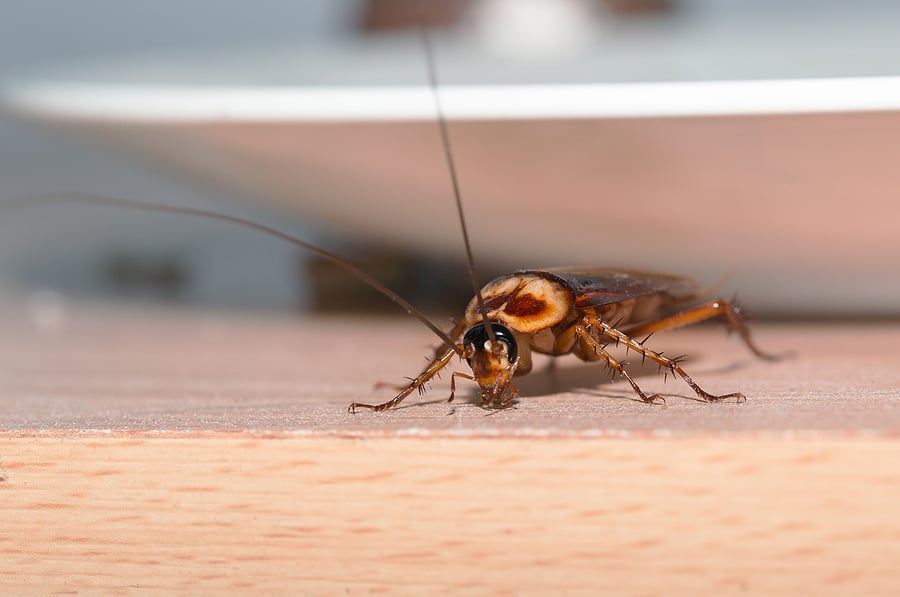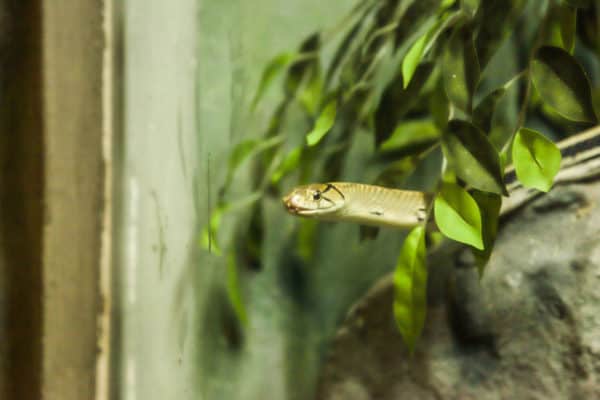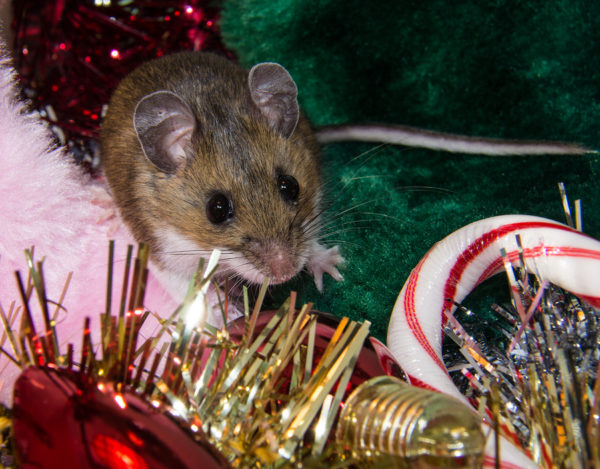READY TO GET STARTED?
REQUEST A FREE ESTIMATE
Fill out the form below or call (888) 466-7849 for a free, no-obligation estimate.

During the wintertime, many homeowners worry less about pests that are common during the spring and summer months. Contrary to popular belief, however, some pests don’t just die off; instead they use their survival instincts to get through the winter. Here is a list of four common winter pests and what you can do to prevent them once the warmer weather arrives!
Seeing ants marching inside your home is typically uncommon during the winter months. Ants are still around, however, as they are great at overwintering and preparing for the cold! Ants prepare for the colder weather starting in the fall where they indulge in lots of food. This preparation technique helps them put on fat so they can survive for weeks at a time without eating. When winter finally arrives, their body temperature and activity will decrease. They will then seal up their colonies built deep in the soil or under rocks, where they will stay until springtime arrives!
Once the warmer weather hits, ants are full of energy and ready to invade your home in search of more food. To make sure these pests don’t come inside, seal all open gaps and holes, especially around areas where pipes and wires enter your home.
Bed bugs are active year-round, meaning they will invade your home whether it’s cold or warm outside. These pests are extremely resilient and can survive temperatures from nearly freezing to 122 degrees Fahrenheit! Because they can withstand these extreme temperatures, bed bug control can be difficult. Common signs of bed bugs include rusty, reddish-brown stains on bed sheets or mattresses, bites on exposed skin when sleeping, and eggs or egg casings.
After coming home from traveling, unpack your clothes and put them directly into your washing machine to clean. Always inspect your luggage for bed bugs and use a vacuum to clean it before storing it.
Most cockroaches can survive year-round if they have access to a warm and moist environment. Unfortunately, this means your home is the perfect place for these pests to inhabit. German cockroaches are one species that are known to survive harsh weather conditions. When cold hits, these roaches are great at sneaking indoors through small gaps and holes.
Cockroaches prefer to live in humid habitats, especially in residential kitchens, bathrooms, and basements. To ensure these pests don’t infest your home, make sure to clean up any spills or food crumbs, vacuum often, and use weatherstripping to seal doorways.
It’s inevitable to see mosquitoes out during the summer months; but it may be surprising to most that these pests don’t die off when winter hits. Mosquitoes will, instead, overwinter or hibernate in protected areas such as hollow logs. When the temperatures increase, female mosquitoes will awaken and seek out a blood source to feed on to begin developing eggs.
Preparing for mosquito activity before summer arrives is crucial in protecting your home and family. Confirm your home is mosquito-proofed by eliminating any standing water, debris from your gutters, and sealing any holes or gaps leading inside the home.
To prevent these pests from invading your home when spring and summer hit, consider contacting your local pest control company. A trained professional can then provide you with an inspection, prevention, and treatment plan.

Some pests hibernate when the weather gets colder, while others seek out warmth inside of our homes. These overwintering pests will sneak through any open crevice or gap from the exterior of your home and can stay there all winter long undetected. Here are a few crawly pests that could be hiding out in your house!
German Cockroaches
The German cockroach is a common roach species found throughout the world. These roaches range from 1/2 to 5/8 inches and are brown with two-longitudinal stripes running down the thorax. They prefer to live in smaller areas close to food and moisture, such as inside pantries, basements, and bathrooms. Roaches are dangerous as they can contaminate food sources, spreading bacteria and human pathogens by leaving their fecal matter and other debris in and around food and food preparation areas.
To prevent cockroaches, make sure you keep your kitchen counters clean and free of crumbs. Vacuum frequently and always dispose of the garbage regularly. Look out for any leaks in the kitchen and bathrooms, as this moisture will attract roaches.
Brown Recluse Spider
Measuring the size of a quarter, the brown recluse spider can exist in large numbers. These spiders have six eyes arranged in three pairs, which is quite different from other species of spiders that have eight eyes arranged in two rows. The brown recluse prefers to live in dark areas such as under furniture, in wall voids, basements, crawl spaces, and in closets. While these spiders typically spin their webs in darker places, they can also found in cardboard boxes, along window molding, and even in shoes. The brown recluse can be dangerous to humans, as they will bite and inject venom if disturbed or threatened.
To prevent these spiders from entering your home, keep the trees and shrubs trimmed away from the house and roof. Repair any loose siding or shingles as they can easily sneak in through any gaps and openings. Consider installing a mesh cover or cap over chimneys to prevent entry.
Bed Bugs
Bed bugs are 3/16” to 1/4” in length or about the size of an apple seed or a pencil eraser. They are long and brown, flat in shape with an oval-shaped body, and brown in color. These pests enjoy harboring in cracks and crevices during the day and will come out at night to feed. You will typically find them in beds, mattresses, box springs, rails, headboards, and footboards. Bed bugs will bite humans on areas of skin that are exposed during sleep. Bed bugs are also notorious for hitchhiking from place to place through luggage, following you back home after traveling.
To prevent bed bugs, routinely check linens, mattresses, and even pet beds for live bugs. Thoroughly inspect any used furniture before bringing it inside your home. If you have recently travelled, inspect your luggage before bringing it inside your home, immediately take your clothes out and wash them in hot water, and dry them on high heat.
If you suspect that you have any of these pests inside your home, consider reaching out to your local pest control company where they can help identify, inspect, and provide a prevention plan.

Winter can be a difficult time for cockroaches. While they are adapted to thrive in warm temperatures, these cold-blooded pests cannot survive environments that are too hot or too cold. In fact, some species stop growing and reproducing when exposed to colder temperatures, usually consistently below 45 degrees, for extended periods of time. As temperatures drop, roaches will seek out shelter in warm places, most often in our homes and offices. These buildings provide them with everything they need to survive the winter – warmth, access to water, and an abundant supply of food.
Prevention is key when it comes to roaches. Here are 5 tips to prevent cockroaches from taking over your home this winter.
Roaches are attracted to dirt and crumbs as a source of food Make sure to always wash dishes after a meal and put them away. Clean up any crumbs and spills immediately. Take out the garbage before going to bed. Clean any grease from your stovetop. Keep food sealed in airtight containers. Sweep, mop, and vacuum on a regular basis. Don’t leave pet food, treats, and water out overnight.
Clearing out clutter gets rid of places roaches can use to hide. Keep rooms clutter free and dusted often. Use plastic storage bins with lockable lids versus cardboard boxes. Eliminate newspapers and cardboard altogether as roaches love to breed in these materials.
Roaches get into homes under doors and through cracks. Identifying these and sealing them up helps eliminate points of entry for cockroaches and other pests. Thoroughly inspect around windows and doors, along foundations and the roof, in attics and crawlspace vents, and around holes used for utility and plumbing lines. For small holes and cracks, use caulk to seal them. For larger holes, especially around pipes, use steel wool and foam to seal. Fine mesh wire can be used to seal around attic vents and chimneys.
Roaches, like most pests, need water and moisture to survive. Therefore, standing water or excessive moisture can attract roaches to your home. Regularly inspect your plumbing for leaks and repair them immediately. Make sure to check faucets, sinks, refrigerators, and appliances for leaks and excessive moisture. Crawlspaces are also a common source of excess moisture in homes. Consider crawlspace enclosure to help minimize moisture under your home.
A cockroach infestation can be extremely difficult to control. Prevention can only go so far in the battle against roaches. If you suspect you have a problem with cockroaches, contact a professional pest control company who can help identify the type of roach you have, thoroughly inspect your home to identify points of entry or food sources, and help set you up with a comprehensive roach control treatment and prevention plan.
Is That Bird’s Nest Dangerous?
The Myth of the Granddaddy Long Legs

Unlike many warm-blooded animals, snakes don’t actually hibernate in the winter. Instead, snakes go into a state known as brumation where snakes become less active and their metabolism slows down tremendously. Brumation is similar to hibernation in that snakes will sleep for long periods of time. They will, however, wake up to forage for food and water and if a sudden warm snap occurs and temperatures rise for a few days at a time. When the weather cools back down, they will go back into their brumation state once again. Brumation can begin anytime from September to December and last until March or April.
Because snakes are cold-blooded, they can’t regulate their body temperatures like warm-blooded animals can. When cold weather hits, snakes must find shelter from the temperatures by burrowing in holes or caves, under logs or rocks, in tree stumps, or by making their way into basements, crawlspaces, garages, barns, sheds, wood piles, and even car engines. Snakes are very quiet and experts at hiding so their presence often goes unnoticed until they are disturbed.
Now that you know where snakes might be hiding this winter, the next question is how to keep snakes away? Here are some tips on how to prevent snakes from hiding out on your property.
Mosquitoes Active Through Fall
How Can Your Business Benefit From Commercial Pest Control?

The holiday season is upon us with decorations, food, and traveling to see family and friends. While most of us are focused on our holiday preparations, we often lose focus on another important aspect of this time of year – pest prevention. Just because it’s cold outside doesn’t mean pests aren’t a problem. The holidays provide many opportunities for spiders, ticks, ants, mice, bed bugs, and other pests to make their way indoors and take over your home.
One of the most common ways pests can get into your home during the holidays is on live Christmas trees, wreaths, and firewood. Ants, spiders, ticks, and other pests can hide deep in the branches of trees and in the crevices of wood. They can even lay their eggs in trees or garland which can hatch once you put them out in your home, potentially causing a major infestation.
Pests can also access your home in those boxes of decorations you drag out from the attic, basement, garage, or crawlspace. Mice and other pests love to get into those cardboard boxes during the off season. You may be in for a surprise when you open your decorations by finding a live pest, droppings, or even damage to your lights and ornaments. It is especially important to check the wiring of your lights to make sure pests haven’t chewed through them.
The holidays are also one of the busiest travel times of the year. Most of us will either travel to visit loved ones or have loved ones travel to visit us. While we’re usually excited to see everyone, we’re not so excited to deal with bed bugs which often hitch rides on the luggage of these travelers. We often see a spike in bed bug cases during the holiday season.
So what can you do to pest proof your home and make sure you don’t get any unwanted guests for the holidays?